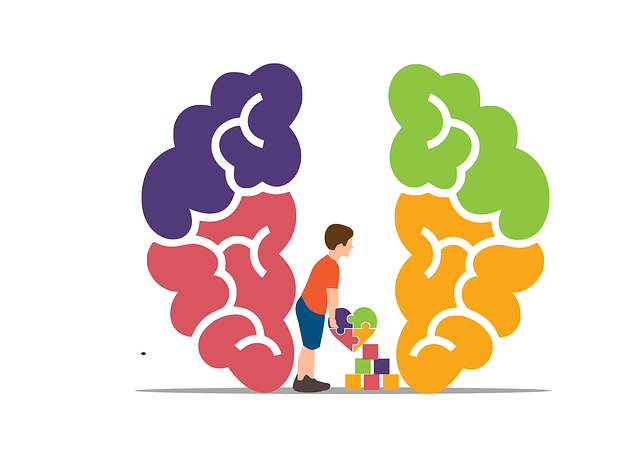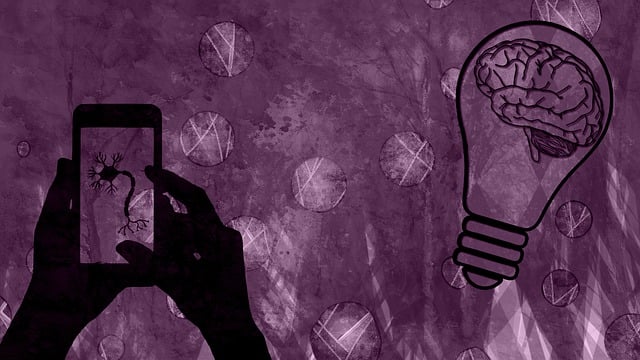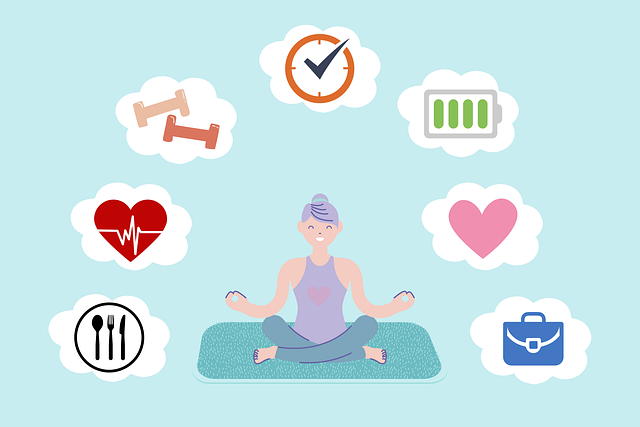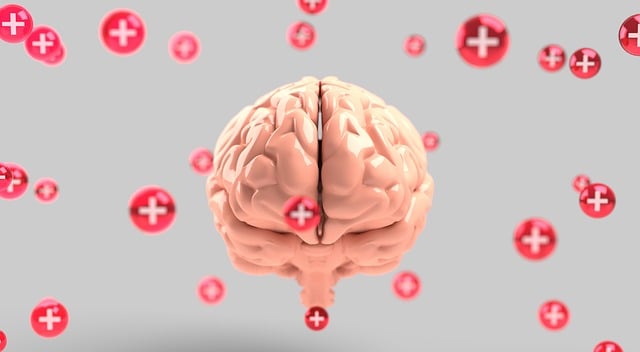Emotional intelligence (EI) is a powerful tool for navigating life transitions, from career shifts to personal milestones, by effectively managing and understanding emotions. Therapy for Major Life Transitions incorporates EI enhancement through self-care routine development, stress management techniques, and emotional landscape awareness, leading to improved mental health and well-being. High EI individuals demonstrate remarkable adaptability and resilience during crises, fostering social connections and transforming challenges into growth opportunities. Key strategies include cultivating self-awareness, emotional regulation, mindfulness practices, therapy sessions, and journaling exercises, all vital for enhancing emotional well-being, especially in healthcare settings.
Emotional intelligence (EI) plays a pivotal role in navigating life’s transitions, offering invaluable tools to manage change. In times of challenge, high EI can significantly enhance resilience and coping mechanisms. This article explores the profound impact of EI during major life shifts, providing a comprehensive guide to development strategies. We delve into techniques like self-reflection, mindfulness, empathy cultivation, and relationship building, essential for emotional well-being post-transition. Discover how these practices can empower individuals to thrive through therapy for major life transitions.
- Understanding Emotional Intelligence and Its Role in Life Transitions
- The Impact of High Emotional Intelligence During Challenging Times
- Strategies for Developing Emotional Intelligence: A Step-by-Step Guide
- Incorporating Self-Reflection and Mindfulness Techniques for Better Management
- Practicing Empathy and Building Strong Relationships Post-Transition
Understanding Emotional Intelligence and Its Role in Life Transitions

Emotional intelligence (EI) is a crucial concept that plays a significant role in navigating life transitions. When individuals face major changes such as career shifts, relationship endings, or personal milestones, their ability to recognize and manage emotions becomes pivotal. EI involves understanding one’s own feelings and those of others, which can foster better decision-making and resilience during challenging times. By enhancing emotional intelligence, people can develop effective coping mechanisms for stress management and anxiety relief.
In the context of therapy for major life transitions, focusing on self-care routine development for better mental health is essential. Building emotional intelligence equips individuals with the tools to process their emotions constructively, leading to improved overall well-being. This, in turn, can enhance one’s ability to adapt and thrive amidst life’s twists and turns. Effective stress management techniques, combined with a strong understanding of one’s emotional landscape, empower people to embrace change and create a more fulfilling future.
The Impact of High Emotional Intelligence During Challenging Times

In challenging times, emotional intelligence (EI) shines as a beacon of strength and adaptability. Individuals with high EI are better equipped to navigate turbulent waters, whether it’s a sudden job loss, a relationship breakdown, or global crises like pandemics. They can recognize and manage their emotions effectively, fostering mental resilience that helps them cope with stress and uncertainty. This ability to understand and empathize with others’ feelings also strengthens social connections, crucial for support during life transitions.
High EI facilitates better communication, encouraging open dialogue about sensitive issues. It promotes active listening, enabling individuals to offer comfort and understanding to those in distress. Moreover, therapy for major life transitions often incorporates emotional intelligence building as a core strategy for enhancing mental health awareness and resilience. By integrating EI skills, people can transform their responses from reactive to proactive, turning challenges into opportunities for personal growth and enhanced mental wellness, even amidst the most difficult circumstances.
Strategies for Developing Emotional Intelligence: A Step-by-Step Guide

Developing emotional intelligence (EI) is a transformative journey that can significantly enhance your personal and professional life. This step-by-step guide offers practical strategies to foster EI, beginning with self-awareness—the cornerstone of EI development. Start by reflecting on your emotions, recognizing their triggers, and understanding how they impact your thoughts and behaviors. Journaling can be an effective tool for this process, allowing you to track emotional patterns over time.
Next, focus on improving your emotional regulation skills. This involves learning techniques to manage strong emotions effectively, such as deep breathing exercises or mindfulness practices. Engaging in therapy for major life transitions, particularly when facing significant changes or challenges, can also aid in developing emotional resilience and adaptability. Additionally, healthcare providers can benefit from burnout prevention strategies and cultural competency training, which not only promote emotional well-being but are essential for providing quality patient care.
Incorporating Self-Reflection and Mindfulness Techniques for Better Management

Incorporating self-reflection and mindfulness techniques is a powerful way to build emotional intelligence and better manage life’s challenges. Self-reflection allows individuals to introspect, gain deeper insights into their emotions, and understand their triggers. By regularly taking time to assess their feelings, thoughts, and behaviors, people can develop a stronger sense of self-awareness—a cornerstone of emotional intelligence. This practice facilitates the identification of patterns, enabling one to make conscious choices rather than reacting impulsively.
Mindfulness complements self-reflection by teaching individuals to focus on the present moment without judgment. It helps in managing stress and anxiety, which are often exacerbated during major life transitions. Therapies that incorporate mindfulness techniques have been proven effective in enhancing mental health awareness and emotional healing processes. By fostering a non-reactive mindset, these practices can significantly contribute to depression prevention, promoting overall well-being.
Practicing Empathy and Building Strong Relationships Post-Transition

After experiencing a major life transition, individuals often seek therapy to navigate through their feelings and build resilience. This is where practicing empathy becomes a powerful tool for healing. Therapists skilled in emotional intelligence can help clients understand and validate their emotions, fostering an environment of trust and security. By encouraging active listening and perspective-taking, clients learn to empathize not only with themselves but also with others, strengthening their relationships.
Post-transition, this skill translates into better communication and deeper connections. Building strong relationships is crucial for recovering from life changes, as it provides a support system that can offer comfort, understanding, and encouragement during challenging times. Through therapy sessions, individuals are guided to develop self-awareness, enhance their emotional regulation skills, and improve their self-esteem—all vital components of mental wellness. This journey often includes journaling exercises to track progress, providing tangible evidence of personal growth and a resource for reflection and trauma support services when needed.
Emotional intelligence is a powerful tool that can significantly enhance our ability to navigate life transitions, especially during challenging times. By understanding and cultivating emotional intelligence, we can better manage our emotions, foster strong relationships, and adapt to change. The strategies outlined in this article provide a practical framework for developing emotional intelligence, empowering individuals to overcome obstacles and thrive post-transition. Incorporating self-reflection, mindfulness, empathy, and other techniques promotes personal growth and resilience, making it easier to face life’s challenges head-on. Remember, therapy for major life transitions doesn’t have to be daunting; with the right tools and mindset, we can embrace change and emerge stronger on the other side.














